This column by American studies professor Ben Railton explores the connections between America’s past and present.
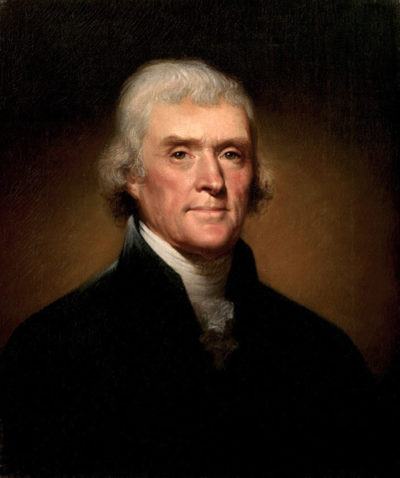
As with so many historical debates in our 21st century moment, the question of race and the Declaration of Independence has become a divided and often overtly partisan one. Those working to highlight and challenge social and cultural injustices will note that Thomas Jefferson, author of the Declaration and its “All men are created equal” sentiment, was, like many of his fellow Revolutionary Founders, a slave-owner, and moreover one who almost certainly fathered illegitimate children with one of his slaves, Sally Hemings. In response, those looking to defend Jefferson and the nation’s founding ideals will push back on these histories as anachronistic, overly simplistic, or exemplifying the worst forms of “revisionist history.”
If we push beyond those divided perspectives, however, we can find a trio of more complex intersections of race and the Declaration, historical moments and figures that embody both the limitations and the possibilities of America’s ideals. Each can become part of what we remember on the Fourth of July; taken together, they offer a nicely rounded picture of our evolving community.
For one thing, Jefferson did directly engage with slavery in his initial draft of the Declaration. He did so by turning the practice of slavery into one of his litany of critiques of King George:
He has waged cruel war against human nature itself, violating its most sacred rights of life and liberty in the persons of a distant people who never offended him, captivating and carrying them into slavery in another hemisphere, or to incur miserable death in their transportation hither. … And he is now exciting those very people to rise in arms among us, and to purchase that liberty of which he had deprived them, by murdering the people upon whom he also obtruded them: thus paying off former crimes committed against the liberties of one people, with crimes which he urges them to commit against the lives of another.
Jefferson here both blames the king of England for bringing the human horrors of chattel slavery to America, and expresses the fear that England will now use those same slaves as part of their conflict with the colonial revolutionaries. That latter critique did have a particular historical context: the British colonial governor of Virginia, Lord Dunmore, had issue a November 1775 proclamation that offered freedom to slaves and other “bonded servants” if they fought for the British against the rebels. But by putting this individual moment into the Declaration, Jefferson overtly framed not just Dunmore’s idea but slavery itself in opposition to both the Revolution and a new American identity. That is, his draft paragraph defines this “distant people” as having been “obtruded” upon the colonists, an artificial and foreign community whose human desire for “liberty” in this framing represents a direct and violent threat to the American project.
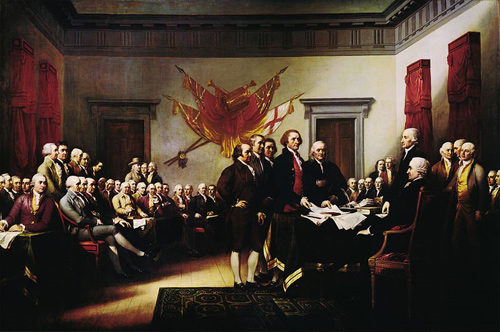
Not surprisingly, this complex, contradictory paragraph did not survive the Declaration’s communal revisions, and the final document makes no mention of slavery or African Americans. Yet the absence of race from the final draft of the Declaration did not keep Revolutionary-era African Americans from using the document’s language and ideals for their own political and social purposes. As early as 1777, a group of Massachusetts slaves and their abolitionist allies brought a petition for freedom based directly on the Declaration before the Massachusetts legislature. “Your petitioners … cannot but express their astonishment,” they wrote, “that it has never been considered that every principle from which America has acted in the course of their unhappy difficulties with Great Britain pleads stronger than a thousand arguments in favor of your petitioners.”
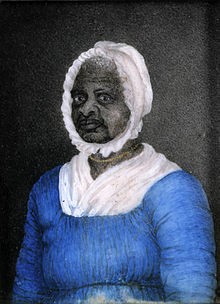
When Massachusetts drafted its own 1780 state constitution, the first in the new nation, it began with a direct echo of the Declaration: its Article 1 opens “All men are born free and equal, and have certain natural, essential, and unalienable rights.” Enshrining that concept in the state’s legal framework added more ammunition to slave petitions. And between 1781 and 1783, two Massachusetts slaves, Elizabeth Freeman and Quock Walker, worked with abolitionist allies to bring legal suits for their freedom, leading to a groundbreaking 1783 Supreme Judicial Court ruling that declared slavery incompatible with both the Massachusetts Constitution and American ideals. With the Revolution and America’s political future still unfolding, these slaves and cases made clear that, elisions from the Declaration notwithstanding, the new nation’s ideals and actions would influence all of its communities.
Although Massachusetts never passed a law rendering slavery illegal, thanks to the Freeman and Walker cases and the 1783 ruling, slavery disappeared entirely from the state: the 1790 census included no slaves, making Massachusetts the first state to abolish slavery (others such as Pennsylvania passed abolitionist laws in the same era, but because they only affected those born after their passage, many African Americans remained enslaved in these states for decades). The nation as a whole did not follow Massachusetts’ example in the aftermath of the Revolution, however. Indeed, the U.S. Constitution solidified the legality of slavery by defining slaves as 3/5ths of a person for the purposes of state populations and political representations.
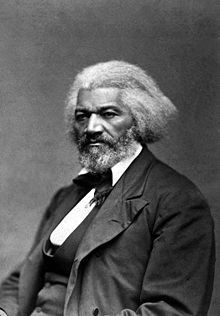
Yet the debate over race and the nation’s founding ideals did not cease, and more than 75 years after the Declaration, Frederick Douglass gave voice to the most impassioned and potent argument in that ongoing debate. In his speech “The Meaning of July Fourth for the Negro,” delivered at Rochester’s Corinthian Hall on July 5, 1852, and later renamed “What to the Slave is the Fourth of July?,” Douglass lays into the hypocrisies and ironies of the occasion and holiday. “Do you mean, citizens, to mock me, by asking me to speak to-day?,” he inquires, adding “This Fourth of July is yours, not mine. You may rejoice, I must mourn.” Yet as he did throughout his long career, Douglass weds such biting critiques to powerful arguments for the urgency of moving toward a more perfect union, one inspired by our national ideals. “I, therefore, leave off where I began, with hope,” he concludes. “While drawing encouragement from the Declaration of Independence, the great principles it contains, and the genius of American Institutions, my spirit is also cheered by the obvious tendencies of the age.”
Those tendencies did indeed result in the abolition of American slavery, an abolition begun by the same president who once more called upon the Declaration’s moment and history in his famous “Four score and seven years ago” opening to the Gettysburg Address. Yet as recent events have so fully reminded us, the debate over race and American identity and ideals and the role of slavery within those histories continues. As we celebrate the Fourth of July this year, remember not only Jefferson and his cohort, but also Elizabeth Freeman, Quock Walker, and Frederick Douglass, each in their own vital ways part of the nation’s Revolutionary founding.
Become a Saturday Evening Post member and enjoy unlimited access. Subscribe now
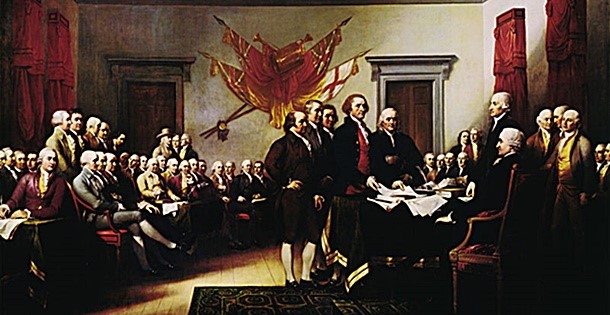
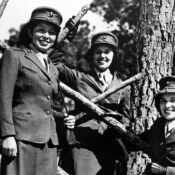
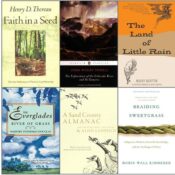

Comments
Thanks as always for the comments and your thoughts, Bob.
I hear you on *Hamilton*, but would disagree in this sense: I think all works that engage with history, whatever their genre, are best seen as parts of a conversation and ways to help connect audiences to histories about which they can and should continue learning. Certainly more creative genres do that differently from more non-fiction ones, but even the non-fictions are partial at best and need to be supplemented and extended and complicated and so on. So to me, the goal of Hamilton is to get audiences interested in histories about which they can then learn more, and in my experience I’d say it’s doing that.
Thanks,
Ben
Thank you Ben for this feature, shedding light on a segment of the American public to whom no days were they ever independent. The 4th of July had to have been a particularly painful day for the many decades following 1776.
It is shameful Jefferson owned slaves, but also interesting he did address slavery initially for the Declaration of Independence, but then had it taken out of the final draft for reasons of hypocrisy and probable fear of what it would ignite.
What the two Massachusetts female slaves accomplished was remarkable. Frederick Douglass always told it like it was. He was frankly, one of our Founding Fathers as well.
The historical truth must be kept accurately, such as the way this feature and The Saturday Evening Post always have. Plays such as ‘Hamilton’ are at best an exercise in one man’s historical fantasy strictly for entertainment. At worst, starting a trend of dangerous revisionist history, that in the extremely messed up time period we’re in now, will be taken as factual by the unintelligent, unenlightened masses henceforth.
I’m talking about future teachers and professors teaching Miranda’s ‘Hamilton’ and other other nonsense still in the works with a straight face, professor Railton.